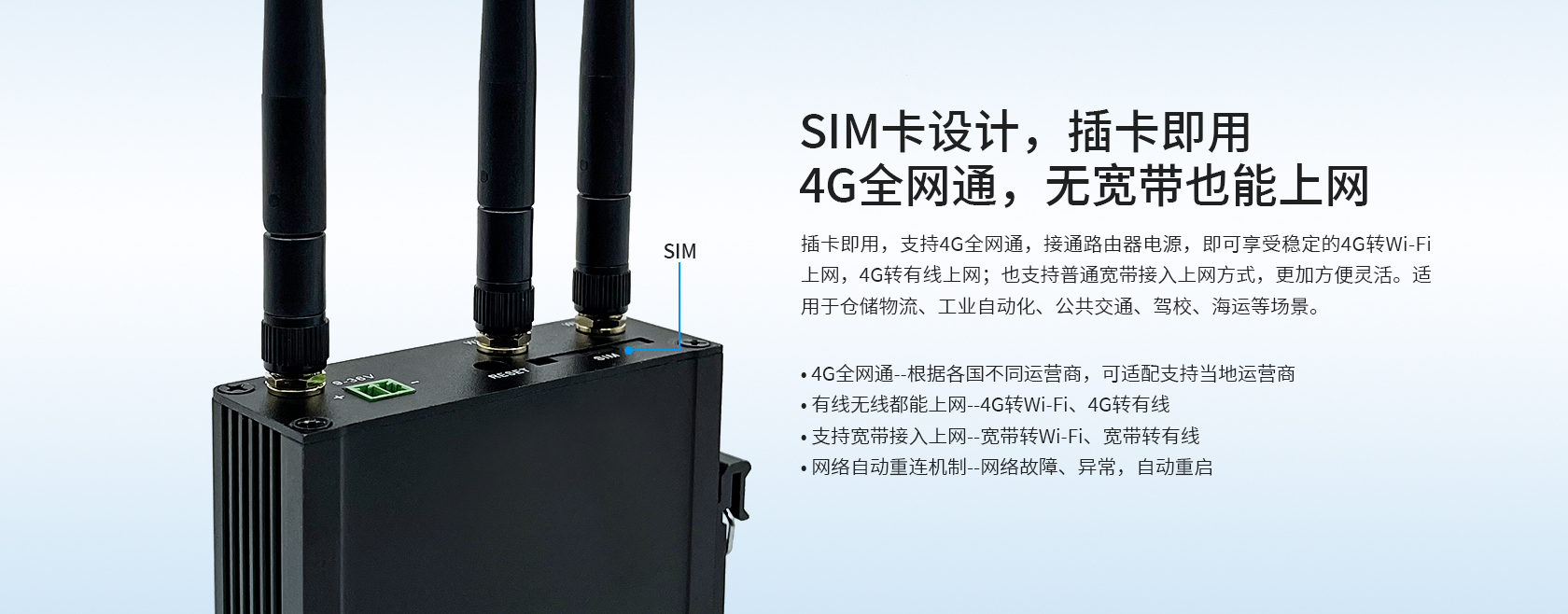What is a 4G Industrial Router?
A 4G industrial router typically refers to a device designed with industrial-grade principles, utilizing 4G networks for data transmission. These products feature high-performance industrial-grade communication processors and embedded operating systems as software support platforms.
4G industrial router systems integrate communication protocols from the logical link layer to the application layer, supporting functionalities such as VPN, firewall, static/dynamic routing, PPP server and client, DHCP server and client, among others. Upon power-on, they can autonomously dial, maintain communication paths automatically, and ensure uninterrupted connectivity. They support features like
automatic timed online and offline capabilities.
4G industrial routers are known for their stability, equipped with full-metal housings for enhanced resistance to interference and radiation. The products incorporate watchdog software and hardware protection, ensuring 24-hour stable operation without downtime.

Classification of 4G Wireless Routers
4G routers are categorized into industrial 4G routers and commercial industrial-grade 4G routers based on their application. Regarding WiFi LAN speed, 4G routers are further divided into 54M, 150M, 300M, etc.
Working Principle of 4G Wireless Routers
4G routers embed wireless 4G modules into the original routers. Users insert a tariff card (SIM card) into the 4G router, which connects to the operator’s 4G network (WCDMA, CDMA2000, TD-SCDMA) for dial-up networking, enabling data transmission and internet access. The router supports WiFi functionality for internet sharing, allowing devices like smartphones, computers, and PSPs with wireless cards or WiFi capabilities to connect to the internet via the 4G wireless router. Some models also include wired broadband interfaces, enabling internet access without 4G. Through 4G wireless routers, broadband connections can achieve or exceed current ADSL network bandwidth, making them widely used in offices, travel, IoT applications, and more.

Functions and Roles of 4G Wireless Routers
4G routers are primarily used for 4G user internet access and wireless coverage. They can directly connect to all Ethernet-connected ADSL modems or cable modems and can also be integrated into local area networks via switches/hubs or broadband routers during use. They come with simple virtual dial-up software that stores usernames and passwords for internet dial-up, enabling automatic dial-up for ADSL, CM, and other internet access methods without manual dialing or needing a dedicated server. Additionally, wireless routers generally feature relatively comprehensive security protection functions.
Currently, 4G industrial routers are mainly applied in industries such as smart transportation, intelligent monitoring, water conservation, power data monitoring, postal systems, meteorological monitoring, and mobile IoT.

